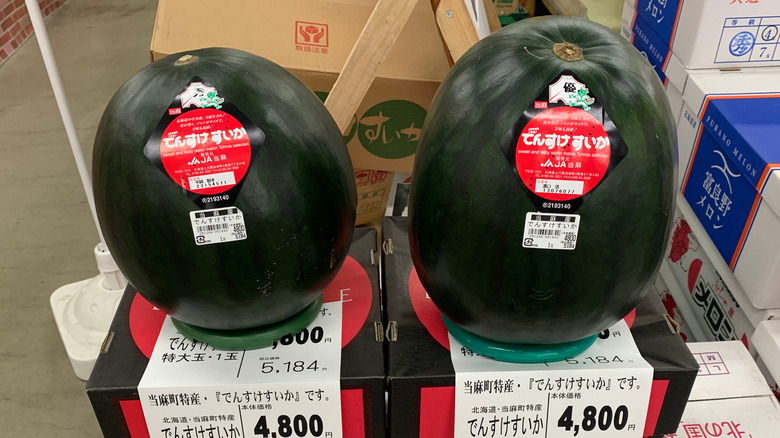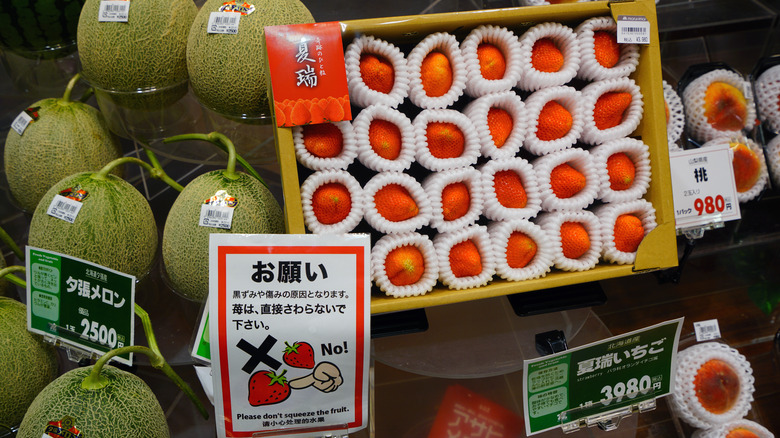Why Densuke Watermelons Can Cost Thousands Of Dollars
In the United States, you can typically expect a watermelon to go for a few dollars at the grocery store. However, in Japan, where expensive, specially-grown fruit is often given as a gift, watermelons can fetch the equivalent of hundreds — or even thousands — of dollars.
One of the rarest and most expensive fruits found in Japan is the Densuke watermelon. According to The Garden Magazine, these world-famous melons are grown exclusively on the island of Hokkaido. Since the melons are difficult to cultivate and require constant care, the yields are small — producing a limited number of fruits per season. Nearly seedless with a black rind and exceptionally sweet flesh, Densuke melons typically cost around $250 USD. In 2008, a Densuke melon sold for roughly $6,100 USD; it's considered the most expensive watermelon ever sold.
While exceedingly rare, Densuke melons aren't exclusively sold in Japan. In 2014, The Toronto Star reported that nine precious melons priced at $199.99 had found their way to Toronto grocery stores via a company specializing in rare fruits and vegetables. One farmer told the Star that Canadian customers who buy specialty fruits like the Densuke melon care less about taste and more about the status associated with such unique produce.
Why Japanese culture values fruit
While expensive fruit isn't exclusive to Japan, CNN Travel explains that the country's love of fruit has a unique cultural context. Traditionally, fruit had a spiritual connotation in Japan, often given as an offering to the gods at Japanese temples. Now, giving someone a luxurious, perfectly-grown piece of fruit is a sign of respect. The gift is also valued for its beauty and packaging like an ephemeral piece of art rather than a healthy snack.
According to BBC News, part of the reason why Japanese people are willing to spend so much on produce is a sense of pride in the Japanese agriculture industry. and consider Japanese fruits to be the best in the world. It's hard to argue. After all, Japanese farmers are responsible for square watermelons and strawberries the size of a tennis ball (via CNN Travel). The Guardian suggests that this cultural respect for farmers might give Japanese people a better sense of the skill and labor required to cultivate produce, making them willing to pay more.
As for the buyer of the record-breaking $6,100 melon, his decision to drop several grand on a piece of fruit was motivated by altruism rather than status. According to CNN, he stated that he purchased the fruit because he wanted to support local farmers.

